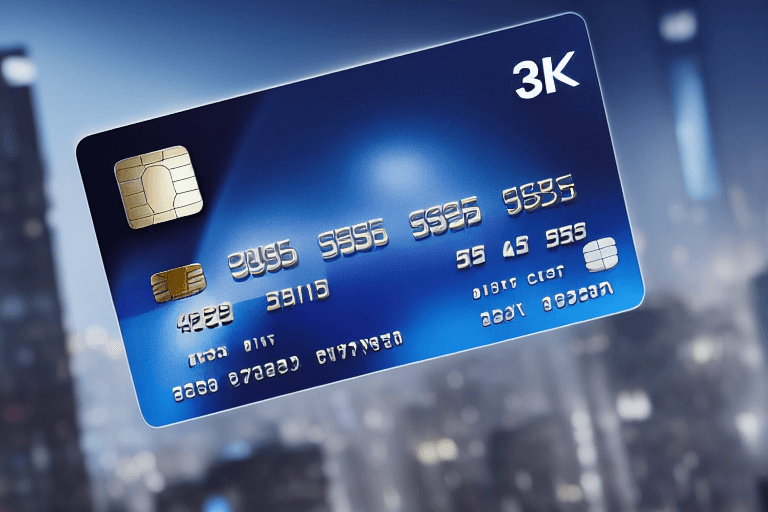As you settle in the Netherlands, you must familiarize yourself with banking in the Netherlands. This guide will provide you with what you need to know about Dutch banks during your stay.
Banking Basics
First and foremost, be aware of your options. There are plenty of banks to choose from, varying from the traditional, retail kind all the way to the modern mobile ones. Your choice depends on what’s most important to you.
Mobile Banks
Bunq
Bunq is an app-based Dutch bank with a European reach available in English, Dutch, and other European languages such as Spanish and German. They provide an easier banking experience to save users time and money. You can set up a bank account in 5 minutes by downloading the bunq app. Offers include:
Personal:
- Easy Savings: free
- Three different personal premium plans depending on your needs
Business:
- Easy Savings: free
- Three different premium plans depending on your needs.
Bunq advocates for the protection of the environment by saving CO2. With your SuperGreen Metal Card, you contribute to planting trees via your payments!
Revolut
Revolut is a global financial superapp based in the UK. It guarantees control over your savings and easy connection with people across the world, ideal for international students and graduates. The 3 plans for opening a personal account: Standard (free), Premium, and Metal, and Business Metal for a business account.
Dutch Banks (The Big 3)
ABN AMRO
ABN AMRO is one of the largest banks in the Netherlands. It is most suitable for students and graduates who don’t speak Dutch, because they provide information in English. The bank offers free mobile and online banking. The Student Package is free of charge for international students. Students and graduates can open an account upon arrival once they get their BSN.
ABN AMRO offers three different kinds of credit cards (standard credit card, gold credit card, and student credit card). In case of damages or losses, you also get an insurance cover based on your credit card option.
ING Group
ING Group is a Dutch multinational bank included in the Big 3. It also allows students and graduates from all over the world to open a Dutch account upon arrival and after they get their BSN. The student account opens for free, and you get a student debit card. Facilities include Mobile Banking App and My ING account with an English version for both.
Rabobank
Rabobank is a cooperative Dutch bank with high safety ratings internationally. You can open a bank account for free and get a free credit card, as well. You need to book an appointment to set up an account. Unfortunately, the website/internet banking does not provide any information in English.
Other top banks in the Netherlands include:
TIP: If a Dutch bank website (or any website) doesn’t have the page available in English, right click with your mouse anywhere in the page, and select ‘translate to English’. The browser will automatically translate the page for you. Just make sure to do it every time you change a page. Note that this function only works in Google Chrome!
Opening a Dutch Bank Account
Opening a Dutch bank account offers a range of benefits while you’re in the Netherlands. If you are going to be staying for a while, it is highly advisable that you open a Dutch bank account to save money and make your payments easier.
Do I need a bank account?
If you are an international student or graduate who has already got a bank account from your home country, you might be thinking that you don’t need to open a new one. However, a Dutch bank account allows access to a lot more services and benefits than you can imagine.
Reasons to open a Dutch bank account:
Working in the Netherlands
If you intend to work or are already working in the Netherlands, you will need a bank account to pay for your health insurance. Most health insurance providers require you to have a Dutch bank account in order to apply. Getting a Dutch health insurance is mandatory when you work in the Netherlands. Even if you are an EU/EEA citizen with a European Insurance Card, this won’t suffice.
Allowances
The Dutch government provides allowances such as housing and healthcare which supplement your income or provide a sense of financial relief to your expenses. One of the prerequisites to apply for a benefit is to have a Dutch bank account where you will receive your money.
Subscriptions
For closing deals with mobile (sim only) subscriptions, such as a mobile plan subscription (i.e. sim-only with Lebara), you need a Dutch bank account.
Cultural Discounts
One of the perks of living in the Netherlands is the access to various cultural discounts. However, in order to get them, you need to have a Dutch bank account. If you want to get the well-known Cineville card for unlimited access to films across 40 art house cinemas, set up your Dutch bank account as soon as possible.
Required documents
Some Dutch banks may not require all of the documents listed below. Make sure to visit the website of your desired Dutch bank to see what they require from you. In order to open a bank account, most Dutch banks request that you have the following:
- Valid proof of identity: your passport or ID card
- Proof of Dutch address: your contract, whether it’s an apartment or student housing
- BSN number: you can get your burgerservicenummer when you register at a Dutch municipality. ABN AMRO and Bunq do not require that you have it right away and, thus, you can start an account before you obtain it.
- Proof of enrollment at a Dutch educational institution: applies only when you open a student bank account and not for every bank. ABN AMRO does not require this but ING Group does.
Additional required documents for Non-EU students and graduates:
- Proof of registration with the Foreign Police
- Resident Permit
Student bank account (studentenrekening)
Most retail banks offer a student account package for university students and graduates. The student package for ABN AMRO is specifically for students aged 18 to 30. The age range varies across different banks, but they are more or less near the same age.
Most student accounts are free of charge, and they consist of the basic services such as:
- Transactions
- Debit card payments
- ATM Cash withdrawals (ABN AMRO is free of charge)
- Transfers
- Access to internet banking and mobile app.
ABN AMRO specifically offers an accompanying Student Insurance consisting of three insurance policies for the price of one. You can get liability, accident, and home insurance. Our guide to health insurances can help you decide on the kind of insurance you need.
Joint Bank Accounts
Dutch banks provide you with the option of joint bank accounts if you wish to share yours with someone else. With ABN AMRO, you can set up a joint bank account for you and another person for just €1,70/month. The price includes a debit card and online banking.
What’s next?
Once you set up an account, you will receive your debit card and PIN code via mail within a few working days. In most cases, you get each of them in two separate letters. Some banks may ask you to visit and pick up your card by yourself, but you will be informed about this when you are setting up your account at the bank.
Online Banking
Technology enables ease of access to our bank accounts and tailors to our requests with the need to physically visit a bank for money matters. This is made possible through internet banking and/or the respective bank’s mobile app.
Internet Banking
All popular Dutch banks provide internet banking services. It’s quick and far more efficient than physically visiting a local branch to make a request. You can log onto your account via the web and check your balance, bill payments, make a deposit, etc. Banks also provide online service support via chat to accommodate any questions that you may have.
Mobile Apps
Most Dutch banks provide handy mobile apps that you can use to make transfers and payment requests. You also have access to your account balance, IBAN number, your savings account and products that your Dutch bank offers to you. Moreover, information for customer service is also available to you. You can also get notified whenever a payment goes in or out.
Money Matters
Money matters include payment methods, ATM withdrawals and money transfers. Living in the Netherlands can make your experience with such basics a little different than what you might be used to.
Payments
Cash Money vs Card Payments
With the increasing number of online purchases, cash money is not a popular payment method. In fact, a lot of stores and restaurants in the Netherlands have a no cash policy. In such cases, owners make it clear with a large sign that indicates their policy.
Card payments are more widely acceptable for security reasons. Further, due to COVID-19, it is more advisable for people to limit their cash payments and adopt the card payment method instead.
Regardless, cash money is still a recognizable payment method, and its acceptance remains high.
What is iDEAL?
One of the most popular and well-known secure, online payment methods in the Netherlands is iDEAL. Every Dutch bank offers the option to use iDEAL for online purchases because of its numerous benefits:
- Easy and secure
- Online payment is processed immediately
- You can pay using your Dutch bank’s account or via the mobile app (i.e. the ABN AMRO app)
- Registration is optional
- No software or app to download
- Payment details are automatically filled in for you
iDEAL is also gradually gaining international popularity with more than 100,000 webshops in over 60 countries that allow payments using iDEAL. Note that iDEAL payments cannot be refunded, and you cannot use iDEAL outside the Netherlands.
Withdrawals
ATM
If you wish to withdraw cash, you can use any ATM all over the Netherlands. Keep in mind that there is a daily or weekly limit to how much money you can withdraw or spend. Additionally, you always need to use your secret PIN in order to use an ATM. You can use an ATM to change your pin, but for safety, it is recommended to use your mobile app instead.
Due to a surge of raids all over the Netherlands, the Dutch Banking Association, NVB, was forced to close ATMs at night. ABN AMRO ATMs are closed between 11pm and 7am. Also, sealbag machines are open between 6am and 6.30pm from Monday to Saturday. Check the website of your preferred dutch bank for closing hours on their ATMs.
Transfers
Money transfers can be local or international. Whether you wish to send money to your friend to pay them back for your coffee, or whether you wish to send or receive money abroad, it is crucial that you know the means to manage your money transfers.
Tikkie (Local)
Tikkie is a payment app that allows you to make payment requests. It is an initiative of ABN AMRO, but it is available for all customers of any Dutch bank. It is very simple to use, and it’s a great way to manage what you owe and what others owe you. You simply make a payment request to someone by entering the amount in the app and selecting the person you wish to receive your request. They will receive an automated WhatsApp message asking them to process the payment.
If you wish to send money, you can download the app for free (iOS or Android). You do not need a separate online bank account or an e-wallet to receive your payments. Your requested money will automatically be credited to your existing current account. Also, the recipient is not required to have the app in order to send the money.
XE (International)
Navigating the complexities of international transactions as a college student or graduate can be daunting, but XE Money Transfers steps in to simplify the process. Picture this: you need to send tuition fees in a different currency. With XE, you get competitive exchange rates, making sure you're not losing out on your hard-earned money. The user-friendly platform allows you to effortlessly convert your local currency, ensuring a smooth journey through your academic pursuits abroad.
Beyond tuition fees, XE caters to the practicalities of family connections across borders. Whether you're sending support to relatives overseas or receiving funds in a different currency from family, XE's transparent pricing and real-time exchange rate information provide a straightforward solution. No hidden fees mean you can trust that the amount you send or receive is precisely accounted for, fostering financial clarity in your family transactions. So, whether it's supporting your education or managing familial ties globally, XE empowers college students with a reliable and straightforward tool for their international financial needs.
If you're looking to send or receive money from abroad, explore how XE can help you with this.
Credit Cards vs. Debit Cards
Cash money has grown less and less popular with the increase of card usage worldwide, including the Netherlands. In the Netherlands specifically, debit card usage increased by on average 9% per year since 2010. In 2015, the Dutch made more debit card payments than cash payments for the first time. Familiarize yourself with the different types and see what works best for you while living in the Netherlands.
Credit cards
Credit cards are ideal for making large purchases and travelling with fraud protection features. While not too popular, credit cards are slowly becoming an acceptable payment method in the Netherlands. International stores across the country such as LIDL and Primark certainly accept visa cards. However, a lot of local stores do not accept credit cards — others may not accept cards, at all! Even if you have a debit card with you, make sure you carry some cash as well when you shop at local markets.
Debit cards
Debit cards are the most commonly used type of cards in the Netherlands. Debit cards are a lot easier to obtain than credit cards, because the application process takes a lot less time. Debit cards allow you to manage your own money by only spending what you have. Without the option to borrow money, you can avoid debts.
Debit card or credit card?
Debit cards are mainly used by people in the Netherlands for their routine purchases. This includes grocery shopping, coffee, food, and other markets. People in the Netherlands use credit cards for online booking purchases such as flights, hotels and car rentals. Moreover, cash withdrawals and payments are free of any charge when you use your debit card. In some cases, you will be charged extra for withdrawals and payments via credit cards.
Bank Products & Other Services
Banks offer a lot more services than just bank accounts. Some of them include taking out loans and mortgages. Expert advice is available to customers for any services. It is best that you seek out more information and advice before making any big steps.
Loans
When you apply for a loan, you request money in exchange for gradual repayment. All loan terms and conditions are established before any money exchange takes place. Applying for loans can be made online with most banks such as ABN AMRO. You can get expert advice there if you need it, including customer support in English.
Make sure to know how much you will be repaying, and only take out a loan when it is necessary. If you are struggling with money matters, remember that the Dutch government offers health & insurance benefits to students and graduates that you can be eligible to apply for.
Mortgages
If you wish to invest in buying a house, you must be aware of the fact that there are a lot of things to consider. The process should not be rushed, so make sure to plan ahead. Consider taking this step after graduation. Home experts can assist you with buying a home in the Netherlands and inform you about Dutch regulations and legislation.
ABN AMRO offers mortgage advice with experts by scheduling an appointment. This can be made via video, where you can meet and discuss matters with an advisor online. If you don’t think you need advice, you can always try out ABN AMRO’s knowledge and experience test to determine whether or not you are acquainted with the essentials to taking out a mortgage.
Moving In Together
If you plan on opening a joint account with someone, you might also be planning to move in together. Whether it’s a friend, partner, or relative, you must know how to share your expenses and manage your money.
Grip App
Grip is a mobile app provided by ABN AMRO that gives you an overview of all your expenses. It allows you to keep track of everything you pay and, thus, you can see what you and your partner owe one another. Grip can also help you control your expenses and cut them down.
You can still use the app, regardless of the Dutch bank that you are registered with. You can also manage all your bank accounts, across different banks as well, and keep track of all your money while they are in one place.
You can download Grip on the App Store or Google Play.







Thank you for this. However, if this is to be a complete guide, perhaps it is necessary to also include ASN and Triodos in your review. I have so far discovered that they do not have an English language option on their site. I am also not sure if they are eligible banks when opening a mobile phone account. However, they are significantly more ethical than the Big Three you discuss above.
Hi 👋 Thank you for your feedback and suggestions! We appreciate your input and will definitely take it into consideration as we continue to update and improve our guide. Regarding ASN and Triodos, we understand that they are both ethical banks that operate in a similar manner to the banks we discussed in our guide. However, we did not include them in our review as they are not widely available and may not be accessible to all readers.
My son is studying at Tilburg but turns 18 at the end of November. His university needs to release his living money but he is having trouble opening a bank account. Can you please advise.
Hi Lucy,
Some Dutch banks may not require all of the documents listed below. To make sure of the required documents, my advice will be to visit the website of your desired Dutch bank. However, most banks will require the following documents: (1) Valid proof of identity which can be your passport or ID card, (2) Proof of your Dutch address which can be a contract, (3) your BSN number, (4) to open a student account they will need your proof of enrollment at a Dutch educational institution, make sure to have a physical copy. In addition, if you do not possess as EU citizenship, more documents might be required. Again my advice will be to check the desired bank's website for the required documents while opening a student account.